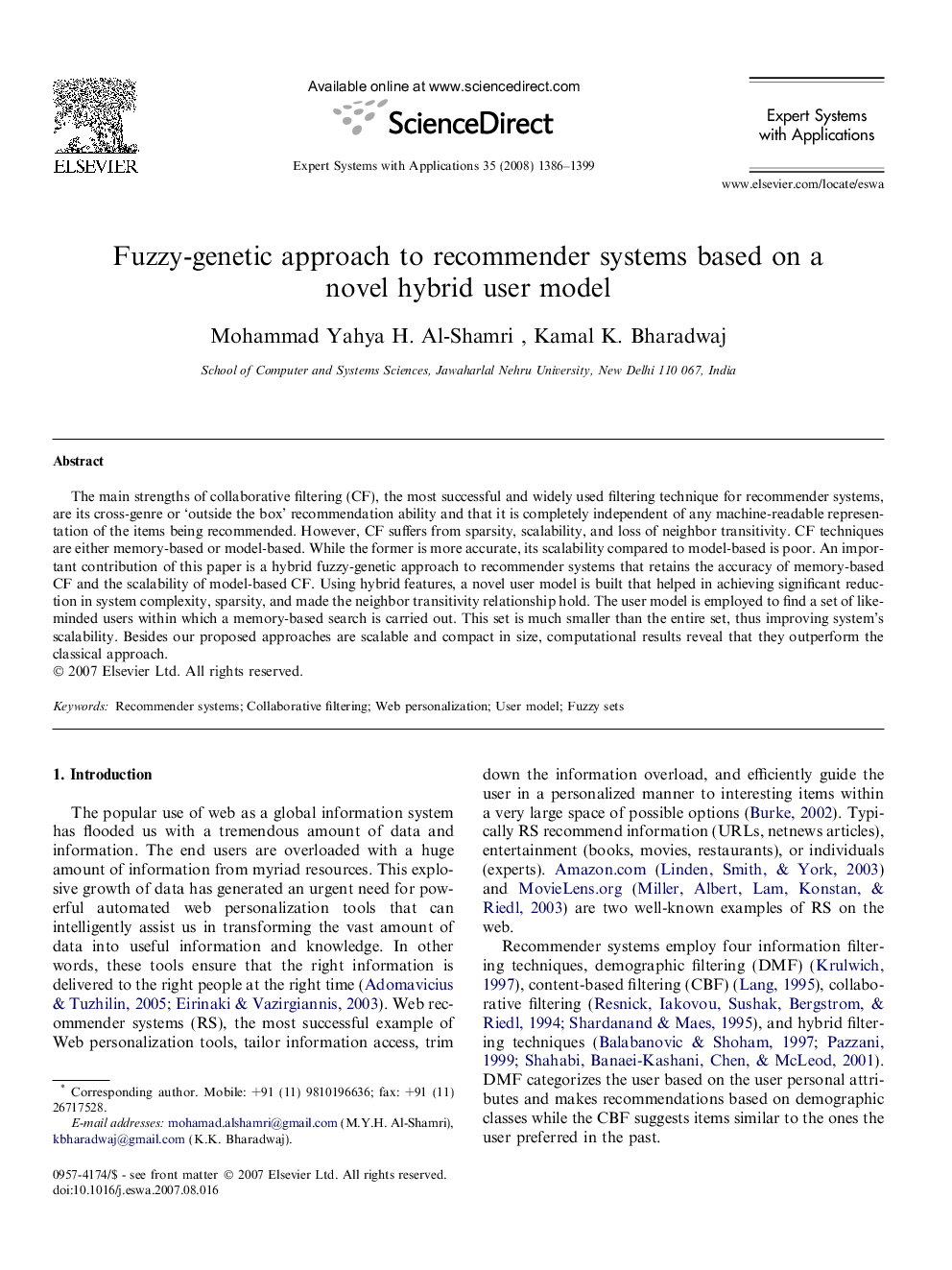| Article ID | Journal | Published Year | Pages | File Type |
|---|---|---|---|---|
| 386903 | Expert Systems with Applications | 2008 | 14 Pages |
The main strengths of collaborative filtering (CF), the most successful and widely used filtering technique for recommender systems, are its cross-genre or ‘outside the box’ recommendation ability and that it is completely independent of any machine-readable representation of the items being recommended. However, CF suffers from sparsity, scalability, and loss of neighbor transitivity. CF techniques are either memory-based or model-based. While the former is more accurate, its scalability compared to model-based is poor. An important contribution of this paper is a hybrid fuzzy-genetic approach to recommender systems that retains the accuracy of memory-based CF and the scalability of model-based CF. Using hybrid features, a novel user model is built that helped in achieving significant reduction in system complexity, sparsity, and made the neighbor transitivity relationship hold. The user model is employed to find a set of like-minded users within which a memory-based search is carried out. This set is much smaller than the entire set, thus improving system’s scalability. Besides our proposed approaches are scalable and compact in size, computational results reveal that they outperform the classical approach.
